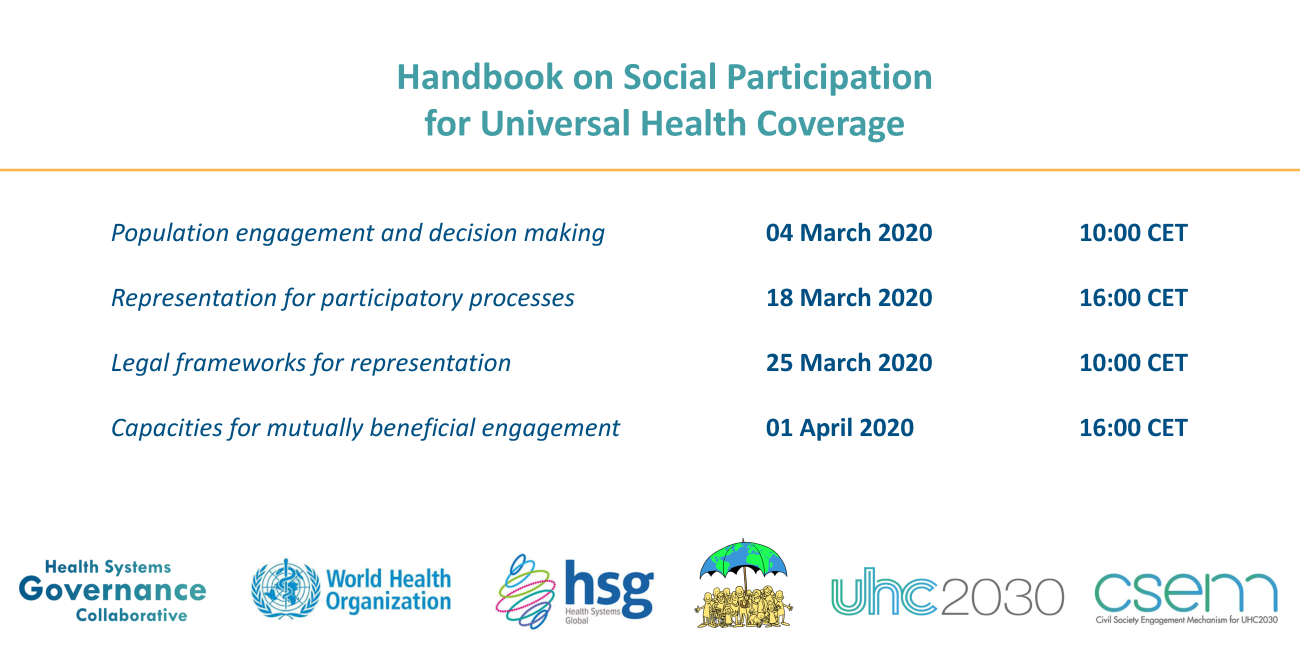Webinar series: Social participation for Universal Health Coverage
WHO, the Health System Governance Collaborative, Health Systems Global, UHC2030, the Civil Society Engagement Mechanism (CSEM) of UHC2030 and the UHC Partnership are co-hosting a webinar series around the development of a WHO guidance document, the handbook on social participation for universal health coverage.
Stay tuned.
- Population engagement and decision making (4 March 2020 at 10:00 CET)
- Representation for participatory processes (18 March 2020 at 16:00 CET)
- Legal frameworks for participation (25 March 2020 at 10:00 CET)
- Necessary capacities for mutually beneficial government engagement with populations, communities and civil society (1 April 2020)
Link to the webinar:
Background
WHO, the Health System Governance Collaborative, Health Systems Global, UHC2030, the Civil Society Engagement Mechanism (CSEM) of UHC2030 and the UHC Partnership are co-hosting a webinar series around the development of a WHO guidance document, the handbook on social participation for universal health coverage. The handbook will provide best practice guidance to policymakers on how to effectively and meaningfully engage with populations, communities and civil society in national policy, planning and review processes.
The third session of the series looked into legal frameworks for participation:
How do laws contribute to social participation? What are some of the prerequisites for legal frameworks?
Different types of legal frameworks (right to health legislation, Health Acts, decentralization laws, etc.) can have positive implications for social participation but they do not guarantee effective participation. Legal frameworks are not necessarily needed but are especially useful when momentum for participation exists and needs reinforcement.
The team synthesized available peer reviewed literature and findings from nine country case studies across the world. A consultation on the handbook content is currently open and we encourage all interested parties to take part.
Recorded event:
The recording of this session can be found below:
